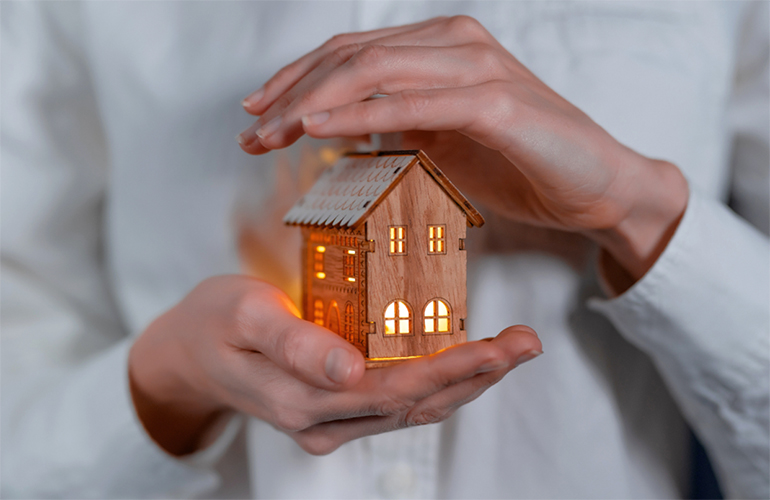With energy prices rising and climate extremes becoming more frequent, many co-ops are looking for ways to make their homes more comfortable, efficient and affordable. At Phoenix Co-op in Geelong, they’re already making it happen, led by Gabrielle, the co-op’s dedicated Sustainability Director.
Gabrielle had previously served as the co-op’s secretary and, in early 2024, assumed the new sustainability role. Always drawn to sustainable practices, Gabrielle wanted to create homes that were both comfortable and energy-efficient while keeping costs low.
She was inspired by a local initiative run by Geelong Sustainability called ‘Climate Safe Room,’ which focuses on maintaining a consistent temperature in one room throughout the year.
“We have older members and people with health issues who need their homes to be warm in winter and cool in summer,” Gabrielle says. “I thought we could do something similar in our co-op.”
To get started, Gabrielle reached out to sustainability consultant Cal Forsyth, who assessed all the co-op properties to pinpoint where heat was being lost in winter and where homes were overheating in summer. Draughty windows and door frames, combined with poor insulation, are the primary causes, resulting in many households paying more for heating or cooling throughout the year. The co-op agreed to fix these issues, and work began in 2024.
Small Changes, Big Savings
While some members were unsure if the upgrades would make a real difference, the results soon spoke for themselves.
“When we had really hot days, members with insulation said their homes felt much cooler,” Gabrielle says. “One person even said their house was quieter because outside noise was blocked.”
As the upgrades rolled out, more members shared their experiences.
“Before the insulation, my home would be freezing in the morning, and I’d have to keep the heater on for hours,” one resident said. “Now, it stays warm overnight.”
Another added, “In summer, I used to rely on my air conditioner all the time. But after the upgrades, I barely needed to turn it on.”
The improvements will also make a difference in winter, helping retain heat and reducing the need to use heaters – saving members money on energy bills.
What’s Next?
With insulation and draught-proofing now complete, Phoenix Co-op is planning its next round of improvements, which will be outlined in a future list.
Phoenix is gradually replacing inefficient gas appliances, such as hot water systems, heaters, and cooking appliances, with more efficient electric ones. The city plans to install solar panels and add ceiling fans to help homes stay cooler in the summer.
“We can’t do everything at once, but we’re taking small steps and keeping members informed along the way,” Gabrielle says.
To help fund the solar installations, Gabrielle is looking into government rebates and grant opportunities. “There are a lot of grants available for sustainability projects, so we’re seeing what we can apply for.”
Advice for Other Co-ops
Gabrielle’s advice for other co-ops is simple: start small and focus on what’s practical and achievable. “For many of our homes, that meant insulation and draught-proofing,” she says. “Even little changes, like sealing doors and windows, can make a big difference.”
It’s important to seek expert opinions – for example, draught-proofing may not be suitable for some homes if there are gas systems in place.
Many councils throughout Victoria have initiatives like Geelong Sustainability. If your co-op is interested, consider contacting your local council. Some upgrades, such as solar installations, require involvement and approval from CEHL.
